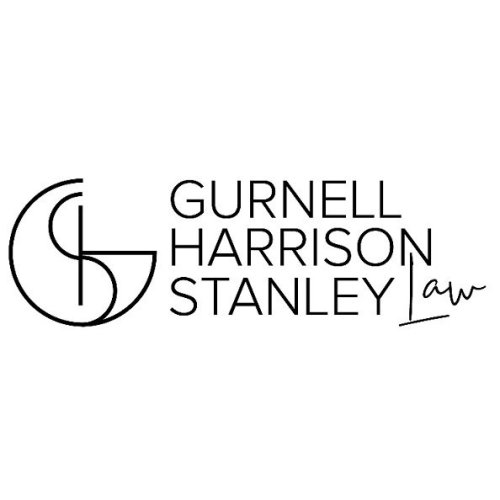Best Office Solutions Lawyers in New Zealand
Share your needs with us, get contacted by law firms.
Free. Takes 2 min.
Or refine your search by selecting a city:
List of the best lawyers in New Zealand
About Office Solutions Law in New Zealand
Office Solutions encompasses a broad range of services designed to streamline business operations, including but not limited to office space leasing, IT services, office equipment, and furniture management. In New Zealand, this sector is vital due to the growing number of businesses that focus on maximizing efficiency and productivity in a competitive market. The legal landscape for Office Solutions can involve various regulations relating to commercial leases, contract negotiations, IT compliance, intellectual property, and dispute resolution, which are vital for ensuring smooth business operations.
Why You May Need a Lawyer
Engaging a lawyer experienced in Office Solutions can be beneficial for numerous reasons. Common situations include:
- Negotiating Leases: Legal assistance is crucial when entering or exiting office leases, ensuring terms are favorable and comply with local laws.
- Contract Disputes: Resolving conflicts regarding service agreements or terms of purchase can prevent costly litigation and protect business interests.
- IP and Technology Law: Navigating intellectual property protection and IT compliance issues related to hardware and software solutions.
- Employment Law: Ensuring workplace policies are compliant with employment regulations, particularly around remote working solutions.
- Environmental Compliance: Adhering to regulations concerning eco-friendly office practices and waste management.
Local Laws Overview
New Zealand has a robust legal framework governing Office Solutions, focusing on various aspects:
- Commercial Lease Law: Office leasing is subject to the Property Law Act 2007, emphasizing tenant rights and obligations.
- Consumer Guarantees Act 1993: Protects businesses purchasing office equipment and services from domestic suppliers.
- Employment Relations Act 2000: Governs employment contracts and workplace conditions, crucial for office-based businesses.
- Health and Safety at Work Act 2015: Imposes duties on businesses to maintain safe working environments.
- Resource Management Act 1991: Applies to office developments impacting land use and environmental considerations.
Frequently Asked Questions
1. What should I include in an office lease agreement?
Key elements include lease duration, rental rates, renewal terms, maintenance responsibilities, and termination clauses.
2. How can I resolve a dispute with an office solution provider?
First, review your contract. If direct negotiation fails, consider mediation or arbitration through a legal professional.
3. Are there legal requirements for workplace ergonomics?
Yes, under the Health and Safety at Work Act 2015, employers must ensure a safe workspace, including ergonomic considerations.
4. What laws affect flexible working arrangements?
This is primarily covered by the Employment Relations Act 2000, which supports requests for flexible work under certain conditions.
5. How can I protect my business's intellectual property in office solutions?
Consider filing patents, trademarks, or copyrights, and include confidentiality agreements in client and employee contracts.
6. What are my rights if the leased office equipment is faulty?
The Consumer Guarantees Act 1993 covers you for repair, replacement, or refund for faulty equipment purchased domestically.
7. How does data protection affect IT office solutions?
The Privacy Act 2020 regulates how businesses collect, store, and manage personal data in IT systems.
8. Is public liability insurance necessary for office leases?
While not mandatory, it's highly recommended to cover potential damage claims or accidents within the leased premises.
9. Can I terminate am office lease early?
Early termination depends on lease terms; typically, penalties apply unless negotiated with the landlord.
10. What should I consider when outsourcing office services?
Due diligence on provider reputation, clarity in service level agreements, and compliance with applicable laws.
Additional Resources
For further assistance, you can approach:
- Ministry of Business, Innovation and Employment (MBIE): Offers guidance on business compliance and development.
- New Zealand Law Society: Provides resources and directories for finding legal professionals.
- Dispute Resolution Services: Such as the New Zealand Dispute Resolution Centre, which can assist with mediation needs.
- Commerce Commission: For issues related to fair trading and competition law.
Next Steps
If you require legal assistance with Office Solutions, consider the following steps:
- Evaluate Your Needs: Clearly identify legal issues, whether it's contract negotiation or compliance concerns.
- Research Lawyers: Seek specialists in commercial law with experience in Office Solutions. Use directories from the New Zealand Law Society or other legal associations.
- Consultation: Arrange for an initial consultation to discuss your situation and evaluate the lawyer’s expertise.
- Gather Documentation: Collect relevant contracts, correspondence, and documentation before your consultation.
- Cost Consideration: Discuss fee structures up front to understand potential costs involved in obtaining legal services.
Lawzana helps you find the best lawyers and law firms in New Zealand through a curated and pre-screened list of qualified legal professionals. Our platform offers rankings and detailed profiles of attorneys and law firms, allowing you to compare based on practice areas, including Office Solutions, experience, and client feedback.
Each profile includes a description of the firm's areas of practice, client reviews, team members and partners, year of establishment, spoken languages, office locations, contact information, social media presence, and any published articles or resources. Most firms on our platform speak English and are experienced in both local and international legal matters.
Get a quote from top-rated law firms in New Zealand — quickly, securely, and without unnecessary hassle.
Disclaimer:
The information provided on this page is for general informational purposes only and does not constitute legal advice. While we strive to ensure the accuracy and relevance of the content, legal information may change over time, and interpretations of the law can vary. You should always consult with a qualified legal professional for advice specific to your situation.
We disclaim all liability for actions taken or not taken based on the content of this page. If you believe any information is incorrect or outdated, please contact us, and we will review and update it where appropriate.
Browse office solutions law firms by city in New Zealand
Refine your search by selecting a city.

















